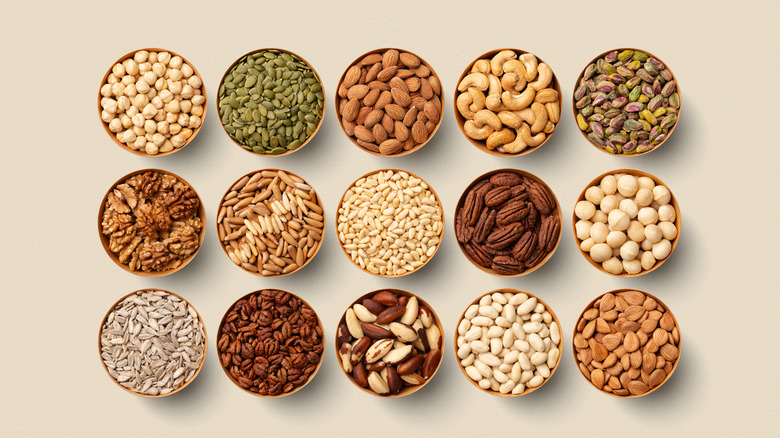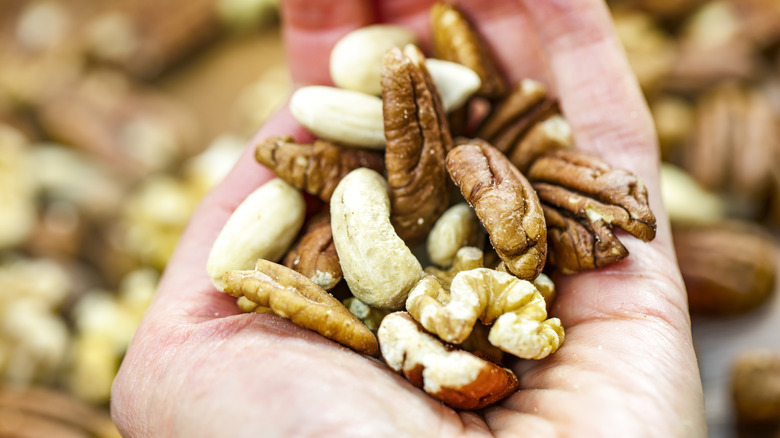Make Nuts Last Longer By Stashing Them In The Freezer
Nuts may seem like they'd last forever, perched in your pantry where you can grab a handful at your leisure. Unfortunately, nuts spoil faster than you'd think, especially when stored at room temperature. This is because nuts contain a high percentage of unsaturated fats, which can be broken down to release free radicals via oxidation — the same process that turns your banana slices brown – when exposed to air, heat, and light. As these free radicals are released, they form things like hydroperoxide, which helps speed up the process even more.
Moreover, nuts aren't immune from growing yeast and mold if they're stored improperly for too long, and while most molds found on nuts are harmless, that's not always the case. In 2018, PepsiCo recalled a brand of peanuts due to high aflatoxin levels. This toxin, which can increase cancer risk, is produced by the mold Aspergillus flavus and Aspergillus parasiticus, found on crops including peanuts and tree nuts. While the U.S. Food & Drug Administration tests foods that may contain this toxin, it still recommends tossing out any moldy, shriveled, or discolored nuts — and storing them properly can help curb any possible mold growth.
Fortunately, nuts can be preserved by being stored in the freezer inside an airtight container, which keeps them temperature stable and away from light and oxygen. When stored like this, they can be kept for a year to two years without a change in flavor. However, it is recommended that you let them warm up when you take them out before opening their container to prevent unnecessary moisture absorption. That said, if you don't need to store your nuts for too long, you can keep them in your refrigerator for up to six months to a year, with nuts containing less fat lasting longer.
Which nuts last the longest and how you can tell if they're spoiled
When storing nuts, it's important to remember that they don't all spoil at the same rate. For instance, the less processing nuts have gone through, the longer they will typically last. So, nuts that are still in their shells will last longer than shelled varieties.
This same principle applies to chopped nuts, as this exposes more of the nut's surface to air, impacting oxidation. However, candied nuts have an extended shelf-life because the layer of sugar acts as a barrier between oxygen and the surface of the nut. Additionally, nuts that are higher in fat, such as macadamia, walnuts, pecans, and Brazil nuts, spoil more quickly, especially in warm environments. Likewise, chestnuts are highly perishable and can mold in two weeks at room temperature.
When nuts have just started going rancid, the difference is barely noticeable, but if allowed to progress, they'll develop a paint-like smell and soften. If you were to eat one, unfortunately, the taste would not be pleasant as rancid nuts are very bitter and acrid. Fortunately, you're unlikely to get sick if you eat just one. Still, eating rancid nuts is something you should avoid by utilizing proper storage and checking for spoilage before consumption.

